PETG Carbon Fibre
Our carbon fibre PETG offers high tensile strength and stiffness with a sleek matte black finish. A popular choice for 3D printing car parts.
- Lightweight
- Heat tolerance up to 80°C
- High chemical resistance
- Withstands heavy impact
Our carbon fibre PETG offers high tensile strength and stiffness with a sleek matte black finish. A popular choice for 3D printing car parts.
Carbon fibre consists of small strands (roughly 5-10 microns in diameter) of mainly carbon atoms. We use a PET-based composite containing 20% recycled carbon fibres to produce attractive, dimensionally stable prints. The filament boasts an impressive strength-to-weight ratio making it ideal for a range of applications.
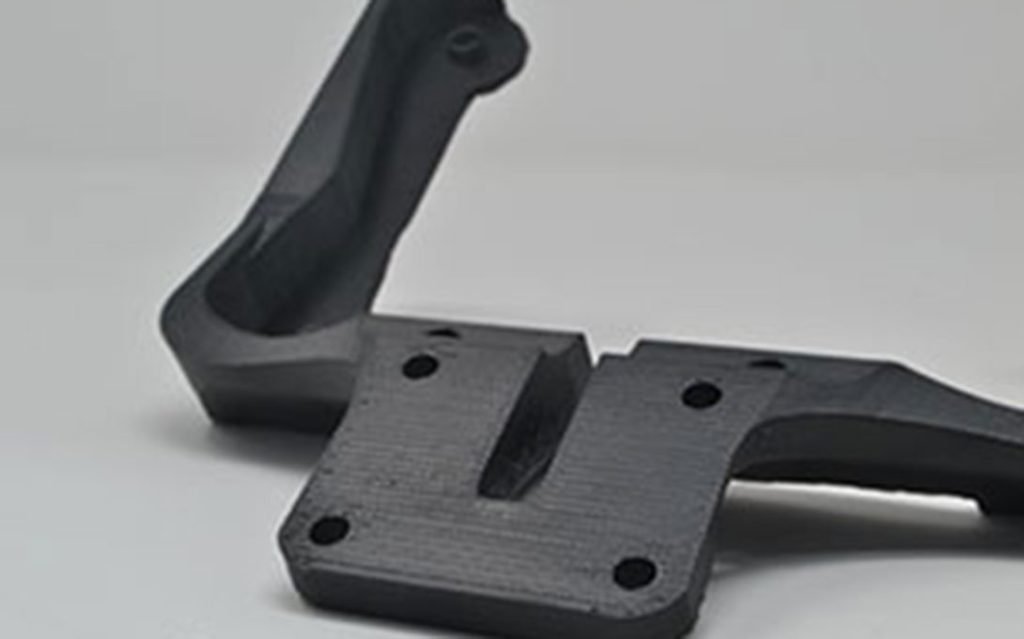
Our carbon fibre PETG filament is heat resistant up to 80°C. Not only does this aid the 3D printing process and prevent shrinkage, it also means your final parts will be able to withstand higher temperatures.
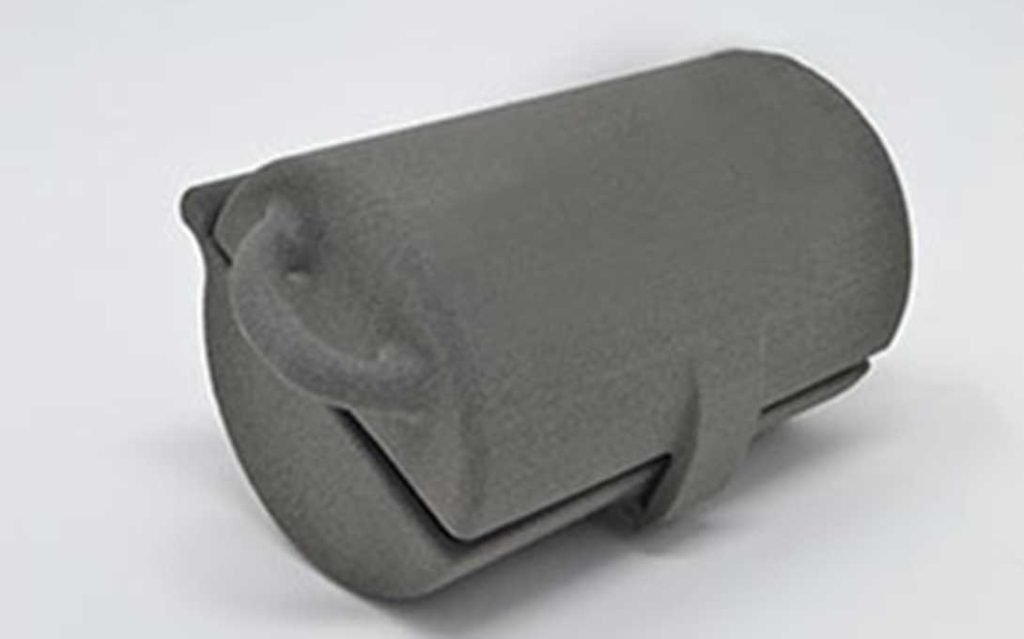
Expect lightweight prints with a high tensile strength and stiffness. Parts will be rigid, durable, and impact resistant. Its strength makes it a good option for prototyping designs that will eventually be injection moulded.
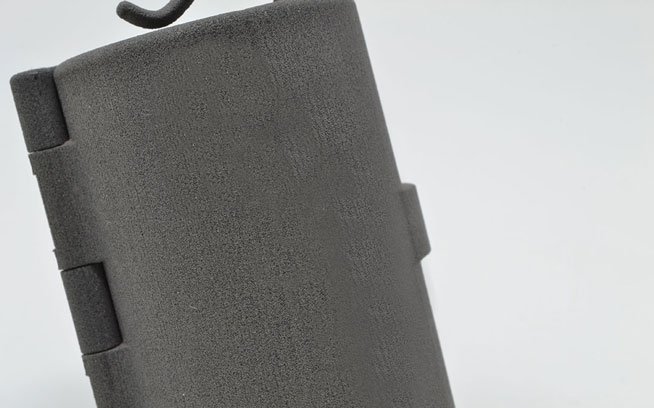
Carbon fibre is incredibly versatile due to its resistance to a number of harmful substances. These include chemicals, oil, and grease. These corrosion-resistant properties are perfect for end-use parts.
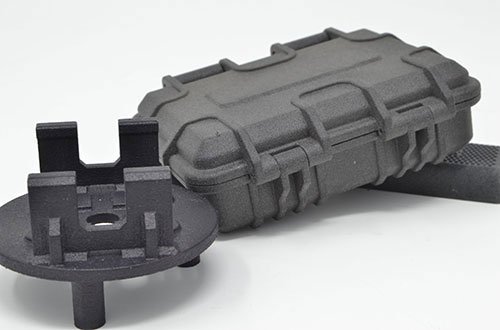
A key selling point of carbon fibre 3D prints is the sleek matte black finish. The layer lines typically associated with FDM printing also blend together to the point that they are barely noticeable. Rather than a shiny finish, yours parts will feel slightly rough, closer to an SLS print.
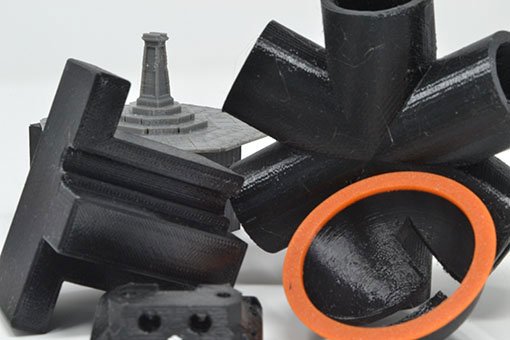
By reinforcing standard PETG filament with carbon fibre, you greatly increase its mechanical integrity. Strength, stiffness, and dimensional stability all improve significantly, without adding weight. It also changes the finish from a smooth, glossy texture to a grainy, matte.
We offer a wide array of filaments, each with their own pros and cons. Check out the comparison below:
Our engineering FDM filaments are the ideal option for high-performance applications.
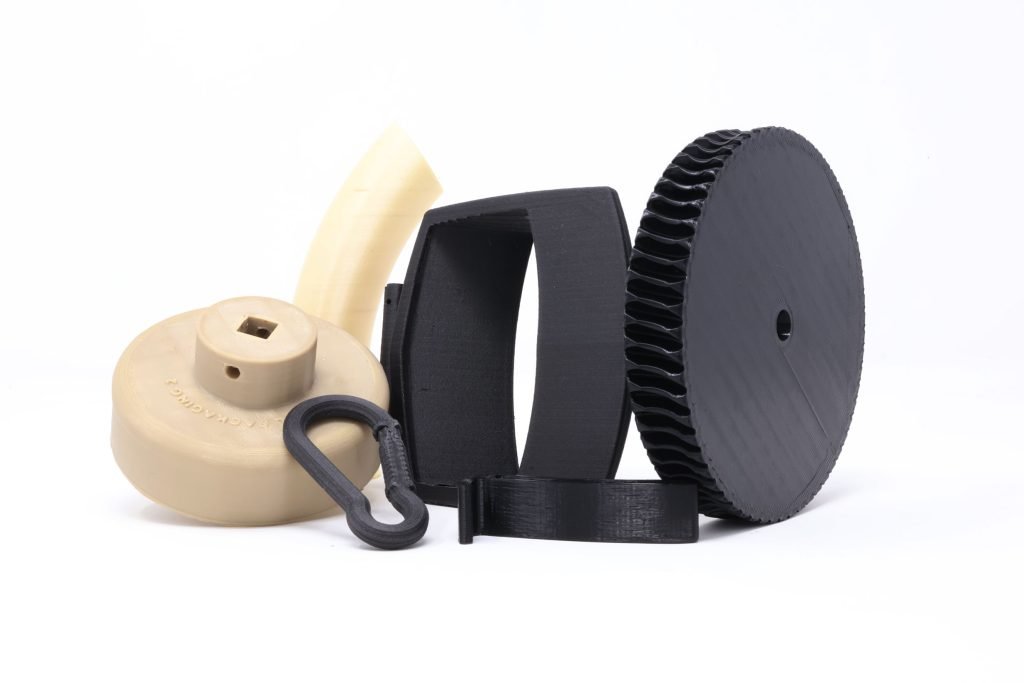
Yes, carbon fibre offers a high chemical resistance. It can also tolerate temperatures up to 80°C.
Depending on the delivery speed you select, this is when you can expect to receive your Carbon Fibre 3D prints:
Carbon fibre is slightly more expensive than other FDM 3D printing materials due to its enhanced quality. However, it is still very affordable and makes for a cost effective alternative to creating parts in metal.
Our carbon fibre infused PETG has an impact strength of 3.8 kJ/m2 under the ISO 179 testing method. Under ISO 527, it scored a tensile strength at yield of 52.5 MPa, 4.2% strain at yield, and tensile modulus of 3800 MPa.
PETG filament is thicker than PLA and therefor need to be printed at a slower speed and high temperature. With that in mind the 3D printing process is almost identical to that of PLA being that they both use FDM printing. The filament is passed through the glass transition temperature and then extruded onto the printing bed layer by layer until were left with you 3D part.
For carbon fibre reinforced PETG, a hardened/steel nozzle is recommended due to the material's abrasive properties. The printing temperature should be around 230-260°C.
We’re ready for your enquiry. Please fill out the form and someone will get back to you as soon as possible or you can give us a call.
This website uses cookies to ensure you get the best experience on our website.